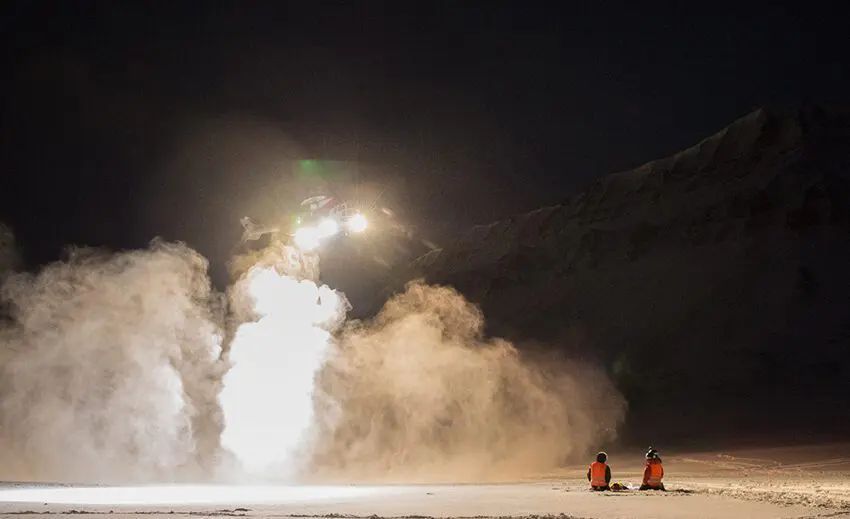AS-101 Arctic Survival and Safety (3 ECTS)
ID:
AS-101
CREDITS:
3 ECTS
START DATE:
January 08, 2025
END DATE:
January 15, 2025
COURSE PERIOD:
Spring semester (January), annually.

Course requirements:
Mandatory for students following full semester bachelor courses in spring term, in addition to master and PhD students attending courses in block 1, starting January 8th.
Academic content:
The course is intended for students with little or no prior experience of life in the high Arctic. The course therefore focuses on conditions and risks you can expect to meet in Svalbard.
The course provides a thorough theoretical basis within several topics. It includes hands-on practice in a range of vital safety- and survival skills. The following topics are covered:
- Risk scenarios in Svalbard – general safety precautions
- Use of rifles and pyrotechnic flares to scare away polar bears
- First aid, especially treatment and prevention of frost injuries
- Navigation in Svalbard by map reading and compass, assisted by GPS
- Use of communications systems including VHF radio, satellite phone and emergency beacons
- Emergency equipment and setting up emergency camps
- Behaviour on sea ice and rescue techniques
- Behaviour on glaciers and rescue techniques
- Avalanche scenarios and rescue techniques
- HSE (Health, safety and environment) – UNIS and student responsibilities.
Learning outcome:
Knowledge
Upon completing the course, the students will have:
- basic knowledge of potential risk scenarios in Svalbard and the high Arctic
- knowledge of the Governor’s role, responsibility and authority in Svalbard, including the framework of environmental legislation of Svalbard
- knowledge of the HSE-system at UNIS.
Skills
Upon completing the course, the students will have:
- skills in handling a rifle and flare gun in a safe way
- skills in first aid and emergency response
- skills in navigation and use of communicative tools as GPS, VHF, satellite telephone
- rescue techniques on glaciers, sea ice and at avalanche sites.
General competences
Upon completing the course, the students will:
- have skills in planning and accomplishing fieldwork and private trips under Arctic conditions
- be able to choose the correct type of clothing and equipment to their planned activity
- be able to recognize dangers in relation to polar bears, weather, avalanche, glaciers and sea ice and by doing so, be able to avoid accidents.
Learning activities:
The course extends over 6 days.
Total lecture hours: Ca. 20 hours.
Total exercise hours: Ca. 20 hours.
Field excursion: 1 day
Compulsory learning activities:
Attendance at lectures, exercises and field excursion.
At least 80% attendance is required to have the course approved.
Assessment:
| Method |
Percentage of final grade
|
| Several practical tests during the course | 100% |
Application deadline: This course cannot be applied for separately.
The course is only offered to enrolled spring semester students at UNIS and is mandatory for these students.